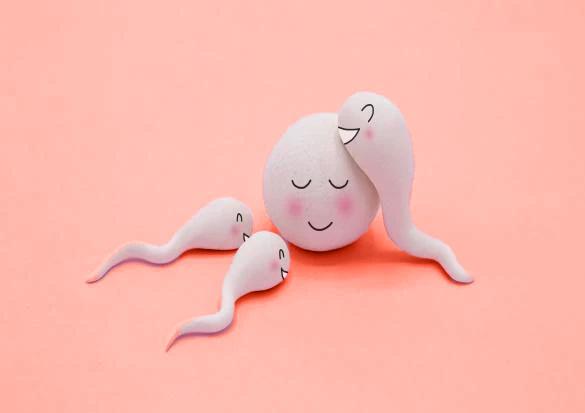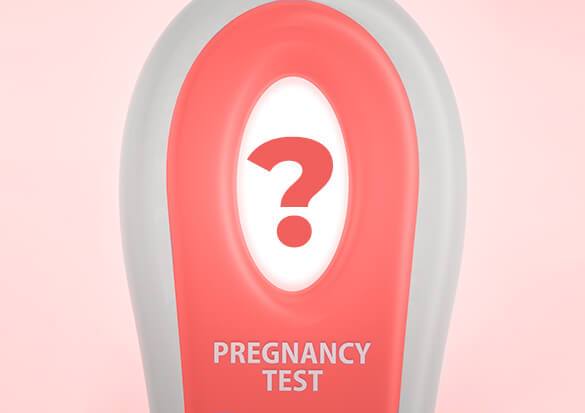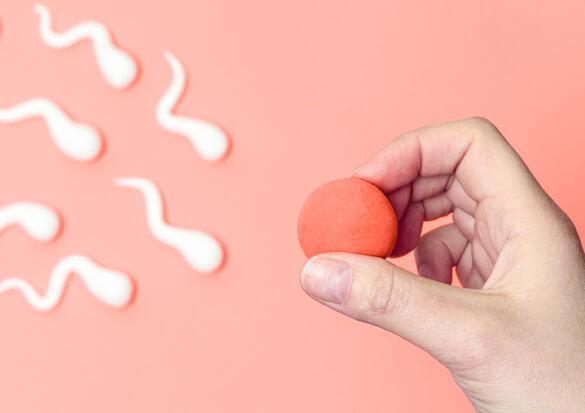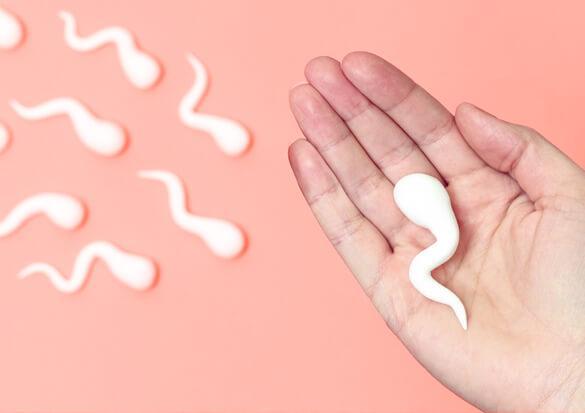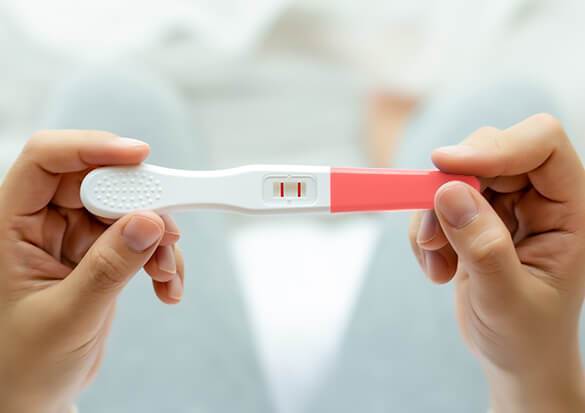What treatments can help me conceive?
Depending on your circumstances, the NHS has a range of fertility treatments that you can access. We explain intrauterine insemination (IUI), in vitro fertilisation (IVF), and intracytoplasmic sperm injections (ICSI).
You may have been trying to conceive for some time, and even made healthy changes to your lifestyle but have not yet conceived naturally.
If you’re under the age of 35 and have been trying to conceive for a year, or over 35 and have been trying to conceive for over six months, then a doctor may suggest fertility treatments.
In this blog we look at:
Treatments that the NHS offer
- Intrauterine insemination (IUI)
- In vitro fertilisation (IVF)
- Intracytoplasmic sperm injections (ICSI)
You may be offered one of these treatments, subject to meeting the criteria. The criteria can vary from place to place and are based on factors like your age, and how long you have been trying to conceive.
National Institute for Health and Care Excellence (NICE) guidelines makes recommendations of who should have access to fertility treatments, with the final decision being made by individual NHS clinical commission groups (CCGs) in the local area [1].
If you don’t meet the criteria, then you may need to pay privately for your treatments. Costs vary, but one cycle of IVF may cost up to £5,000 or more [2].
When considering fertility treatments, most people instantly think of IVF. But there are more options than you may realise.
Five most commonly used fertility treatments in the UK
1. Ovulation induction
If the reason for your infertility is due to you not ovulating, then medication may be given to induce ovulation. This process is known as ovulation induction [3].
A few common reasons for not ovulating include:
- Stress
- Weight fluctuations
- Hormonal conditions such as PCOS
- Disorders of the pituitary and thyroid glands
- Raised prolactin levels
- Premature ovarian failure
If ovulation does not occur, ovulation induction medicines are introduced at the beginning of your menstrual period to help stimulate egg production in the ovaries.
If oral medication doesn’t work, more powerful fertility injections may be necessary to stimulate egg production.
Clomiphene and Clomid are the two main drugs used to induce ovulation. These drugs increase the production of follicle-stimulating hormone (FSH) by the pituitary gland and help the sacs filled with fluid (where an immature egg develops) and egg growth [3].
If this treatment doesn’t work, you may be given daily injections of a drug called Gonadotrophins.
Once on medication, you will be monitored by your doctor. You will have ultrasound scans to check how you have responded, and you will be encouraged to have intercourse as soon as the sacs, known as follicles, have reached the recommended size.
Alternatively, you may have an injection of HCG (human chorionic gonadotrophin). HCG helps an egg mature and be released, which can help to facilitate the timing of intercourse or other fertility treatments.
As a result of ovulation induction treatments, some women may experience Ovarian Hyperstimulation Syndrome (OHSS). OHSS is an exaggerated response to excess hormones [4].
Symptoms of OHSS can include:
- Pain
- Bloating
- Nausea
- Diarrhoea
In severe cases, OHSS can lead to hospitalisation and even death. However, this is very rare due to the careful monitoring that accompanies treatments.
Multiple pregnancies are also a risk of ovulation induction, but again with careful monitoring, this is less likely.
2. Intrauterine insemination (IUI)
Intrauterine insemination (IUI) is a fertility treatment that involves directly inserting sperm into a woman’s womb [5].
You can use your partner’s sperm or a donor's sperm, which is usually a frozen sample. The sperm is washed and filtered to obtain a concentrated sample.
A thin, flexible tube is inserted through the cervix, and the sperm is placed into the uterus, where they are left to fertilise the eggs naturally.
You may be offered IUI in a natural cycle, or you may take fertility medication to stimulate ovulation and control the timing of your IUI.
IUI is one of the more straightforward and natural forms of assisted fertility treatment. Its goal is to increase the number of sperm reaching the egg and achieving fertilisation inside the body, unlike IVF, where fertilisation takes place outside the body [6].
If you’re in a same-sex relationship, you may be offered IUI, or be offered it before trying IVF. You may also be recommended IUI if you are unable to have sex vaginally, due to physical or psychosexual problems, or if one of you has HIV.
As with any fertility treatment, the success of IUI depends on several factors. While IUI is a less invasive and less expensive treatment option, pregnancy success rates from IUI tend to be less than IVF [6].
The younger you are and the better the sperm quality, the higher your chances of success.
You are also more likely to get pregnant if you take fertility drugs to help stimulate your natural cycle. Fertility clinics can advise on this and what is the best option for you.
You can find more information and advice on choosing the right clinic on the Human Fertilisation and Embryology Authority website.
3. In vitro fertilisation (IVF)
IVF has been around since the early 60s and 70s, leading to the first IVF baby being born in 1978 [7].
In IVF, the egg is removed from the woman's ovaries and fertilised with sperm in a laboratory. The fertilised egg, called an embryo, is then returned to the woman’s womb to grow, and develop [2].
The most common procedure used to retrieve the eggs is a procedure known as transvaginal ultrasound aspiration and you will usually be offered sedation and pain medication during the process.
The ultrasound probe is inserted into the vagina to identify sacs filled with fluid, where an immature egg develops. These sacs are known as follicles. The eggs are then carefully removed from the follicles through a needle connected to a suction device and fertilised with sperm in the laboratory.
Any eggs and sperm that fertilise and become an embryo are monitored for two to six days. After which, one, or sometimes two, healthy embryos will be transferred into the uterus.
Any remaining embryos may be frozen to use in the future.
You are usually advised to do a pregnancy test around ten days – two weeks after your embryo transfer, to see if your IVF cycle has been successful.
IVF can be carried out using your eggs and your partner’s sperm, or eggs and sperm from donors. Whether your IVF treatment is successful will depend on things like your age, and the cause of infertility (if known).
4. Intracytoplasmic sperm injections (ICSI))
Treatment using ICIS is the same as with IVF. However, once the egg is removed, instead of mixing it with the sperm and leaving it to fertilise, a single sperm is injected into the egg instead [8]. This maximises the chance of fertilisation as it bypasses any problems the sperm may have in fertilising the egg.
ICSI may be offered to you as a couple if your infertility is due to abnormal sperm, or if you have had previous unsuccessful IVF.
Sometimes sperm can only be obtained by surgical removal from the testicles. This may be due to an earlier vasectomy, blockage, or a genetic condition affecting the sperm.
ICIS is very successful in helping sperm to fertilise the egg. However, as it is used in IVF, and IVF has a low success rate, it may not affect the likelihood of your treatment being successful.
5. Donor conception
Donor conception means having a baby using donated sperm, or donated eggs or embryos [9]. It has become increasingly common, especially for couples who have problems with egg or sperm quality.
Donor conception may also be used for same-sex couples who want to start a family, as well as women who might have already had a child but are struggling to conceive another.
In the UK, it’s illegal to pay a donor anything other than expenses, meaning that most donors will donate for other reasons than financial gain. The expenses are limited to £35 for sperm and £750 for egg donors (per cycle of donation) [10].
Using donated sperm, eggs, or embryos is a huge decision, and you should take the time to think about whether it is the right decision for you. It's recommended to discuss with friends, family, or a professional counsellor before going ahead.
It is recommended to use a licensed UK fertility clinic for donor conception as there are very few risks, due to the checks that they carry out. Some clinics already have a list of donors to choose from, but you may be on the waiting list for a while.
Some people choose to use a friend or someone they know. This is completely viable, and the risks are still low, however, there are rules on certain family members and donations, so it is best to discuss it with your chosen fertility clinic.
The Human Fertilisation and Embryology Authority, have a list of licensed clinics and plenty more information on donor conception.
The Donor Conception Network also offers workshops, sessions, and support, designed for everyone – leading you through the first steps of picking a donor, to raising a donor child.
Fertility buying guide
If you’re trying to pregnant, and it’s not happening as quickly as you’d hoped, you’re not alone. We understand that trying to fall pregnant can be a stressful time for some couples so, to take the confusion out of finding the right test to investigate your or your partner's fertility status, we've created a handy Fertility Blood Test Buying Guide.
Fertility blood tests
Whether you are trying for a baby now or thinking about trying in the future, we have several fertility tests for each stage of your fertility journey.
Have a look at our collection of Fertility Blood Tests, or, if you are unsure which test is best for you, go through our handy Fertility Blood Test Buying Guide or test finder.
References
- IVF availability (no date) NHS choices. NHS. Available at: https://www.nhs.uk/conditions/ivf/availability/ (Accessed: November 22, 2022).
- IVF (no date) NHS choices. NHS. Available at: https://www.nhs.uk/conditions/ivf/ (Accessed: November 22, 2022).
- IVF treatments (no date) NHS choices. NHS. Available at: https://www.uhcw.nhs.uk/ivf/treatments/oi/ (Accessed: November 22, 2022).
- Ovarian hyperstimulation syndrome (2021) Mayo Clinic. Mayo Foundation for Medical Education and Research. Available at: https://www.mayoclinic.org/diseases-conditions/ovarian-hyperstimulation-syndrome-ohss/symptoms-causes/syc-20354697 (Accessed: November 22, 2022).
- Artificial insemination (no date) NHS choices. NHS. Available at: https://www.nhs.uk/conditions/artificial-insemination/ (Accessed: November 22, 2022).
- What's the difference between IUI and IVF? (2019) Carolinas Fertility Institute. Available at: https://www.carolinasfertilityinstitute.com/whats-difference-iui-ivf/ (Accessed: November 22, 2022).
- Eskew AM, Jungheim ES. A History of Developments to Improve in vitro Fertilization. Mo Med. 2017 May-Jun;114(3):156-159. PMID: 30228571; PMCID: PMC6140213
- IVF treatments ICSI (no date) NHS choices. NHS. Available at: https://www.uhcw.nhs.uk/ivf/treatments/icsi/ (Accessed: November 22, 2022).
- Chess Thomas|Medically reviewedbyThanos Papathanasiou, F.specialist and gynaecologist| (no date) Donor conception: What it means for you and your child, BabyCentre UK. Available at: https://www.babycentre.co.uk/a4098/donor-conception-what-it-means-for-you-and-your-child (Accessed: November 22, 2022).
- Using donated eggs, sperm or embryos in treatment (no date) HFEA. Available at: https://www.hfea.gov.uk/treatments/explore-all-treatments/using-donated-eggs-sperm-or-embryos-in-treatment/ (Accessed: November 22, 2022).
Related tests
If you’re hoping to start a family or simply want to understand more about your reproductive health, our Day 3 Fertility Blood Test provides valuable insights into your ovarian reserve and hormone balance
- Results estimated in 2 working days
- 3 biomarkers
Finger-prick or Venous collection
Select testAre you thinking of starting a family now or in the future? Perhaps you’re having or considering fertility treatment, or simply curious and want to know more about your egg count
- Results estimated in 2 working days
- 1 biomarkers
Finger-prick or Venous collection
Select testStay on top of your game with our advanced blood test for men
- Results estimated in 3 working days
- 44 biomarkers
Venous collection
Select testTake control of your health with our best-selling female health check
- Results estimated in 3 working days
- 47 biomarkers
Venous collection
Select test

